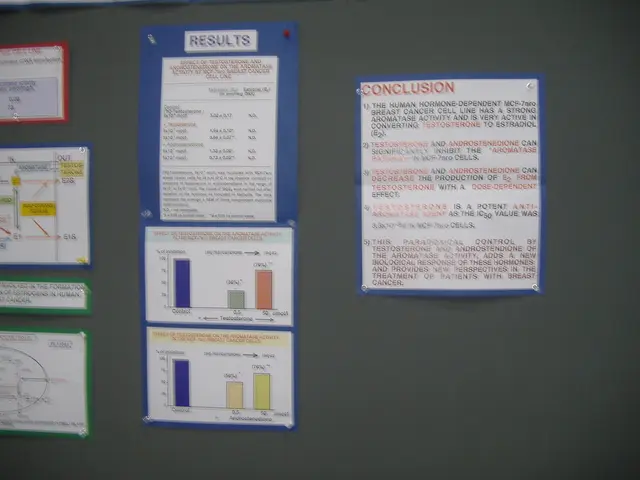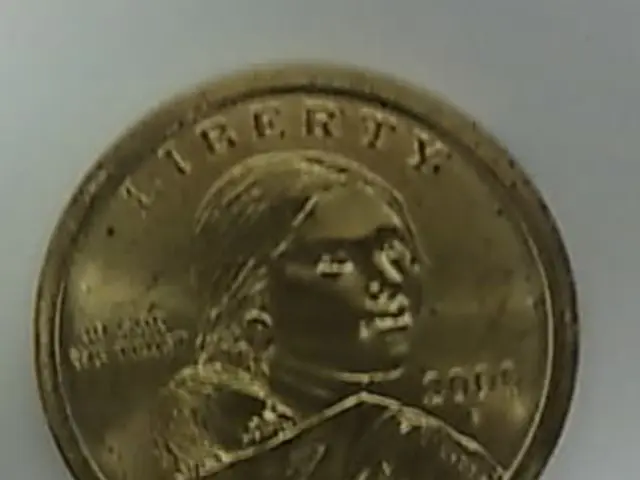The New Tone of US-Europe Relations: Vance Backtracks on Ukraine and Russia
Vice-President Vance Has Rekindled His Romance with Europe, Finding His Past Affections for Ukraine and Russia Waning
Author: Lukas Wessling, New York
Social Media Links: Facebook Twitter WhatsApp Email Print Copy Link
A few months after his "firestorm" speech at the Munich Security Conference, US Vice President JD Vance is back in the limelight, now with a more conciliatory stance towards Europe. The controversial remarks have been swept under the rug as Vance and conference founder Wolfgang Ischinger meet in Washington.
Vance's initial harsh criticism of Europe, accusing it of undermining democracy and curtailing freedom of speech, seemed to have taken its toll. Even the threatening campaign for the AfD (Alternative für Deutschland) further strained relations. Yet, there's a newfound optimism in the US-Europe relationship.
A Mutual Understanding
Vance and Ischinger shared stories of their past, giving the encounter a more relaxed tone. Ischinger, who spent a month in Ohio in 1995, negotiating the Dayton Agreement to end the Bosnian war, was ten years older than Vance at the time. Vance, ever the gracious host, beamed with pride, expressing appropriate admiration. In return, Ischinger acknowledged US intervention's pivotal role in bringing peace to Europe decades ago.
Strained Ties between Ukraine, Russia, and the US
Thirty years later, Europe faces a grim reality, with Russia and Ukraine excluded from peace talks. Both sides are entrenched in their historic grudges, taking up the better half of any conversation. "It's frustrating," admits Vance, weathering the exhaustion. To mediate, it's absurd that both sides aren't talking—a great absentee in their ongoing conflict.
Vance sees unrealistic expectations from both Ukraine and Russia, calling for cool heads and prioritizing economic advantages that can overcome their hatred.
Trade and Defense: Bridging the Divide
Ischinger wanted to steer the conversation towards a conclusion, citing a tight schedule. Yet, Vance was not ready to wrap up. "I'm having fun," he grinned, gesturing to his anxious team tucked away behind the scenes.
When growing economic tensions were addressed, Vance reiterated the need for fair treatment for American firms in European markets. American software companies, he claimed, are being penalized while European companies aren't. He also urged Europe to buy more American weapons.
The Road Ahead for NATO
As the NATO summit draws nearer, Ischinger asked Vance for his expectations from Europe. Vance responded that Europe must invest five percent of its GDP in defense. This goal, he believed, would be a realistic step towards alignment with US security objectives. But he also emphasized the need for industrial self-reliance, critiquing Europe's deindustrialization at a time when a strong industry is essential to support military power.
Vance views this stance as a beacon of hope, especially given Germany's recent suspension of the debt brake for arms spending.
In the end, Vance was extended an invitation to attend the Munich Security Conference again next year, raising his spirits. "I wasn't sure I'd be invited back after last time," he chuckled.
Enrichment Data:The current evidence suggests several areas of focus for JD Vance's discussions regarding trade and defense with the EU.
Trade Expectations
- Reciprocal Trade Policies: Vance has emphasized the need for fair treatment of American firms in European markets, advocating for reduced tariffs and barriers.[3][4]
- Market Access: He has also defended President Trump's tariffs on Europe, pushing for better market access for American goods.[2]
Defense Spending
Though specific details are scarce, Vance's past comments lean more towards encouraging European countries to align with US security objectives.[1] However, his focus has been more on trade and cultural alignments compared to defense spending specifics.
Sources:1. ntv.de2. usatoday.com3. usnews.com4. forbes.com
- Vance reiterates the need for fair treatment for American firms in European markets, advocating for reduced tariffs and barriers.
- He also urges Europe to buy more American weapons, implying potential military trade negotiations.
- Vance believes that Europe must invest five percent of its GDP in defense to align with US security objectives.
- Vance critiques Europe's deindustrialization, emphasizing the importance of industrial self-reliance for military power.







